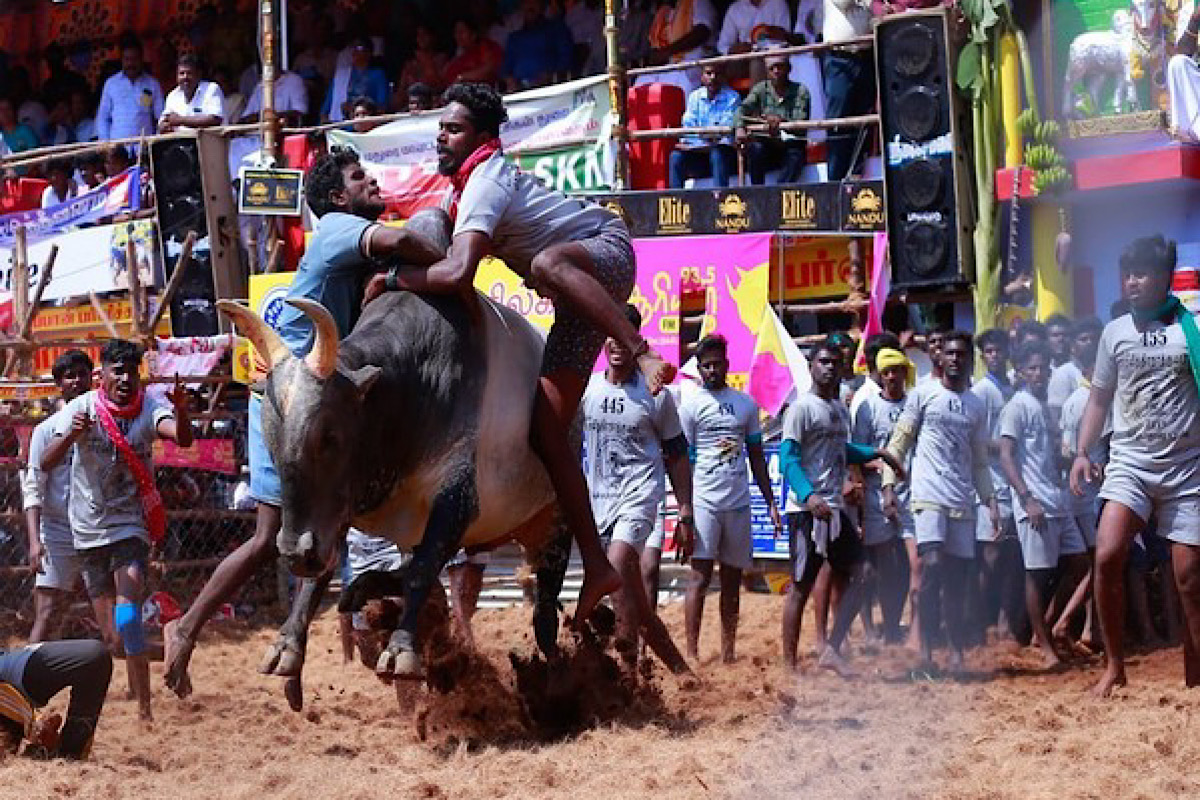The Supreme Court is likely to pronounce on Thursday its judgement on a batch of petitions challenging Tamil Nadu, Karnataka and Maharashtra laws allowing bull-taming sport Jallikattu, Kambala, bull race, bullock cart race, which were restored by three State government by amending the Prevention of Cruelty to Animals Act, 1960.
The three state governments had amended the Central legislation following the May 7, 2014 judgment that had banned the Jallikattu holding that bulls were being subjected to cruelty.
A five-judge Constitution bench comprising Justice KM Joseph, Justice Ajay Rastogi, Justice Aniruddha Bose, Justice Hrishikesh Roy and Justice CT Ravikumar had reserved the judgment on December 8, 2022, ordered after hearing arguments spread over eight days.
The core issue that the bench had flagged in the course of the hearing was whether a law can be held bad merely because its implementation at the ground level was flawed and failed to address the issue of cruelty to bulls.
At one point, during the hearing, the court had even asked whether the amended Tamil Nadu law was unimplementable at the ground level.
While Tamil Nadu had hammered on the point that a law cannot be interfered with merely because its implementation on the ground was not satisfactory, the petitioners challenging the law had said that it was not the facial or the language of the law that alone has to be taken into account but its effect on the ground.
The hearing by the five-judge constitution bench is rooted in February 2, 2018 referenced by a bench of then Chief Justice Dipak Misra and Justice Rohinton Fali Nariman (both since retired).
In 2018, the bench had referred five questions for adjudication by a five-judge constitution bench that included whether amendment to Tamil Nadu law was referable to the subject relating to enactment of law for the prevention of cruelty under Entry 17 of concurrent list. ‘Does it further perpetuate cruelty to animals; and can it, therefore, be said to be a measure of prevention of cruelty to animals?
Other questions referred to the constitution bench were ‘Whether amendment is a colourable legislation which does not relate to any entry in the State list or the Concurrent list. Can the amendment to the Tamil Nadu law be traceable to the State’s cultural heritage and thus entitled to the protection under Article 29(1) of the constitution.
The Clause (1) of the Article 29 that provides for the protection of interests of minorities says, “Any section of the citizens residing in the territory of India or any part thereof having a distinct language, script or culture of its own shall have the right to conserve the same.”
Another question referred was is the Tamil Nadu amendment Act ensure the survival and well-being of the native breed of bulls and is relatable to Article 48 of the constitution.
The Article 48 of the Constitution that takes care of the organisation of agriculture and animal husbandry says, “The State shall endeavour to organise agriculture and animal husbandry on modern and scientific lines and shall, in particular, take steps for preserving and improving the breeds, and prohibiting the slaughter, of cows and calves and other milch and draught cattle.”
Another question referred by the court in 2018 said, “Does the Tamil Nadu Amendment Act go contrary to Articles 51A(g) and 51A(h), and could it be said, therefore, to be unreasonable and violative of Articles 14 and 21 of the Constitution of India?”
The top court by its 2018 reference order asked the constitution bench to adjudicate whether the amended Tamil Nadu law was directly contrary to the top court’s 2014 judgment and whether the defects pointed out in the aforesaid judgments could be said to have been overcome by the State legislature he impugned Tamil Nadu Amendment Act?
The hearing that was spread over eight days, saw Tamil Nadu defending amendment to its laws to permit Jallikattu, telling the court that they have brought in a legal regime that ensures that no unnecessary cruelty is inflicted on the bulls in the course of Jallikattu events. It had said that they have brought in provisions to punish the violations of the safeguards in the conduct of Jallikattu.
Tamil Nadu had permitted the Jallikattu by amending its law in 2017 giving it a shield of being rooted in the tradition and culture of the people.
Similarly, Maharashtra too had defended its amended law permitting bull race, and bullock cart races citing culture and tradition including the safeguards brought under the new legal regime.
Tamil Nadu, Maharashtra and Karnataka amended their law to permit “Jallikattu, bull race, bullock cart race and Kambala respectively after the top court by its May 7, 2014 judgment had banned the Jallikattu holding that bulls were being subjected to cruelty. All through the hearing lawyers appearing for Tamil Nadu and Maharashtra had assailed the 2014 judgment, the petitioners challenging the amended laws permitting Jallikattu, bull race, bullock cart race and Kambala had defended the judgment arguing that it did not suffer from any legal infirmities.”
Apart from the cruelty that bulls are subjected to during the conduct of Jallikattu, the Animal Welfare Board of India had sought to invoke Article 21 (Right to life) for the bulls. The court appeared unimpressed by the argument.
However, the petitioner – People for Ethical Treatment of Animals in India – had referred to Article 21 in the context of casualties and injuries suffered by the humans during the conduct of the events. PETA told the court that every year a number of participants in Jallikattu perish and their number is more than that of bulls.












